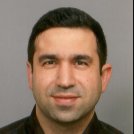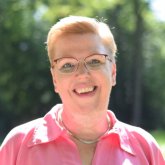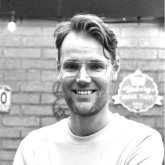The University of Twente wants to be an organisation that effectively deploys diversity, talents, and capabilities in the labour market for now and in the future. In the framework of our diversity and inclusiveness policy, we strongly stimulate people with a (work) disability to apply for this position.
The University of Twente is committed to providing a working environment where everyone is valued, respected, and supported to progress. Our priority is to ensure that no one is disadvantaged based on their ethnicity, gender, culture, disability, LGBTQ+ identities, family and caring responsibilities, age, or religion. We encourage everyone who shares these values to apply.
Your challenge
You will help us realizing the ambitions of the EARTHONE (Environmental Analysis and Resilience for Transformative Human-Optimized Natural Environments) Horizon Europe project from a geospatial perspective.
EARTHONE will contribute to optimizing the net removal of Greenhouse gas emissions by assessing the contribution of sustainable land-use changes in different environments. To achieve this, EARTHONE will follow a multidisciplinary and multiscale approach, integrating innovative data-driven technologies with regional context through a series of living labs in Southern Europe.
You will conduct a comprehensive vegetation seasonality (phenology) study at regional and local scales to better understand how vegetation responds to climate change by integrating and analysing climate simulations, weather and remotely sensed products, and ground observations collected from the existing networks and the project living labs. You will start by mapping the main phenological regions in Europe. Then you will focus on modelling the role of extreme weather events and land use change on vegetation seasonality and efficiency. For this, you will develop and apply geo-artificial intelligence methods, including spatiotemporal machine learning techniques, and gather and integrate experienced knowledge from climate modellers, foresters, soil scientists and agronomists.
Information and application
For more information, you may contact Dr Mahdi Khodadadzadeh (email: m.khodadadzadeh@utwente.nl) or Prof Dr Raul Zurita-Milla (email: r.zurita-milla@utwente.nl). You are also invited to visit our homepage.
For questions about working and living in the Netherlands, please consult the official website of the Netherlands Government or the website of the Expat Center East Netherlands.
Please submit your application before March 6, 2025, including:
* A motivation letter (one-page maximum ) emphasizing why you would like to investigate this topic and what you bring to the team
* Curriculum Vitae (including a list of all courses attended, grades obtained, the names and contact information of two references and – if applicable – a publication list)
* A short (two pages maximum) research proposal outlining your ideas regarding phenological modelling in the context of the EARTHONE project.
* A short description (about 250 words) of your last significant result (MSc thesis/final project report/EngD thesis).
First-round interviews are scheduled for March 19, 2025. A (possible) second round interview might take place a week after the 1st round interview.
About the department
The geoinformation Processing Department (GIP) works on the design and development of methods & techniques for processing (acquiring, organizing, analysing) heterogeneous collections of spatiotemporal data, and in the implementation of open geo-information solutions (models, visualizations and services) that help to understand key societal problems.
About the organisation
The Faculty of Geo-Information Science and Earth Observation (ITC) provides international postgraduate education, research and project services in the field of geo-information science and earth observation. Our mission is capacity development, where we apply, share and facilitate the effective use of geo-information and earth observation knowledge and tools for tackling global wicked problems. Our purpose is to enable our many partners around the world to track and trace the impact – and the shifting causes and frontiers – of today’s global challenges. Our vision is of a world in which researchers, educators, and students collaborate across disciplinary and geographic divides with governmental and non-governmental organisations, institutes, businesses, and local populations to surmount today’s complex global challenges and to contribute to sustainable, fair, and digital societies.




